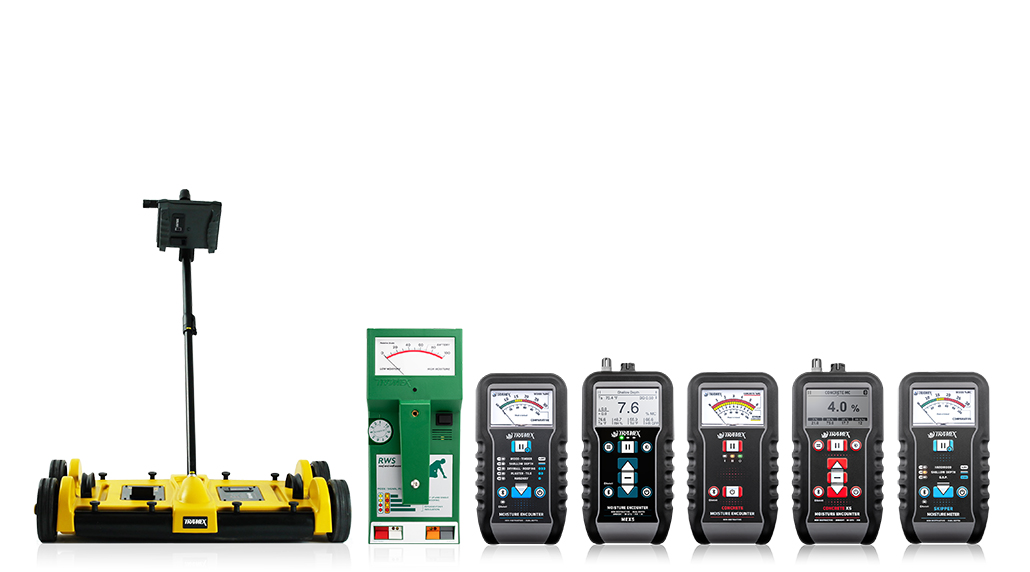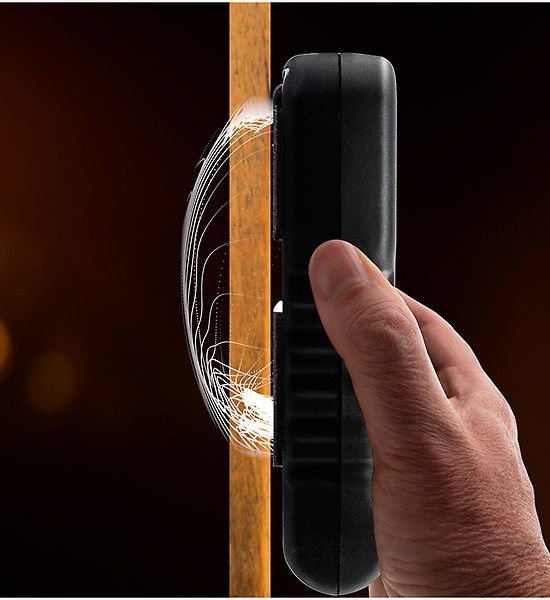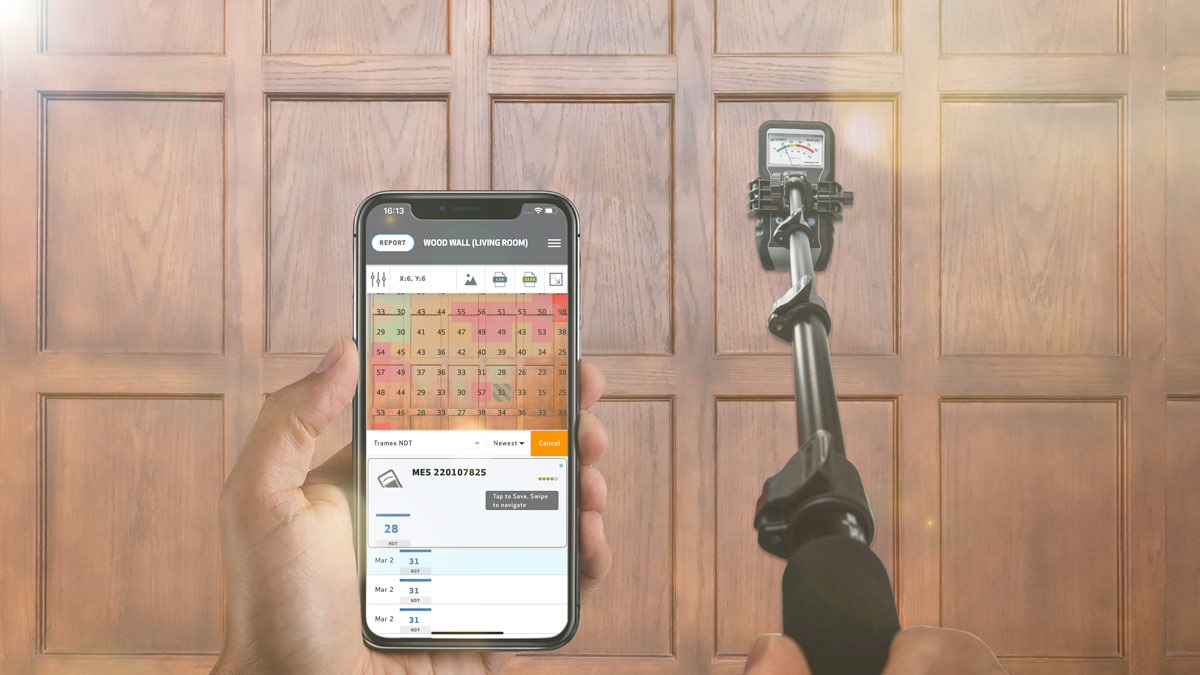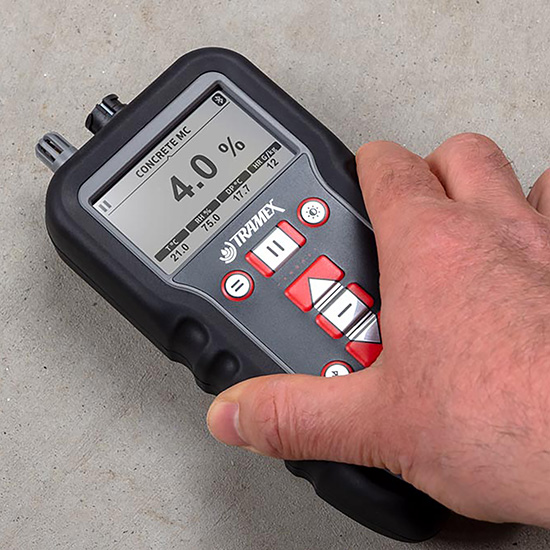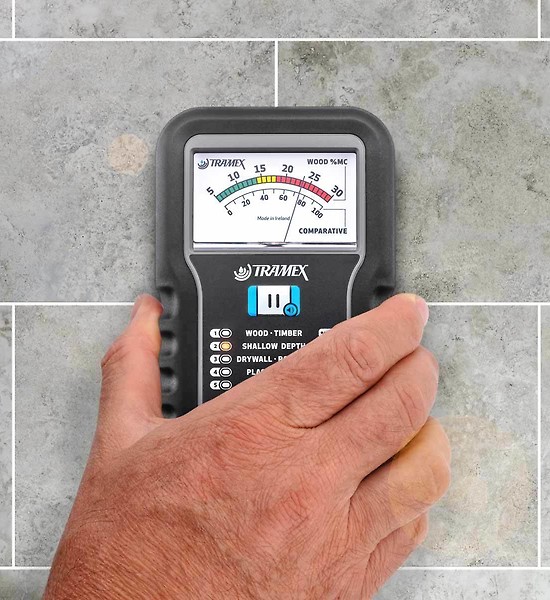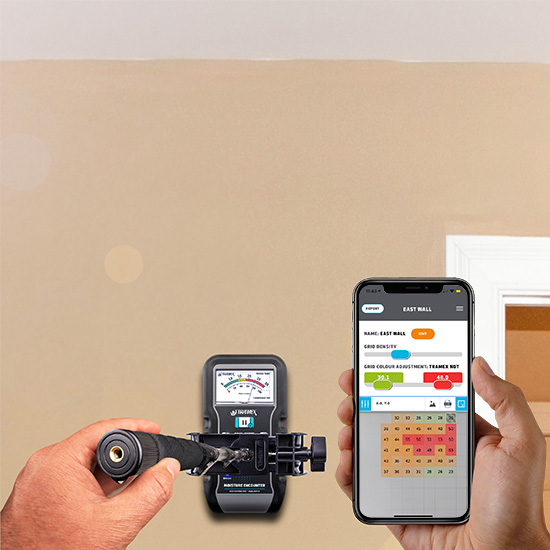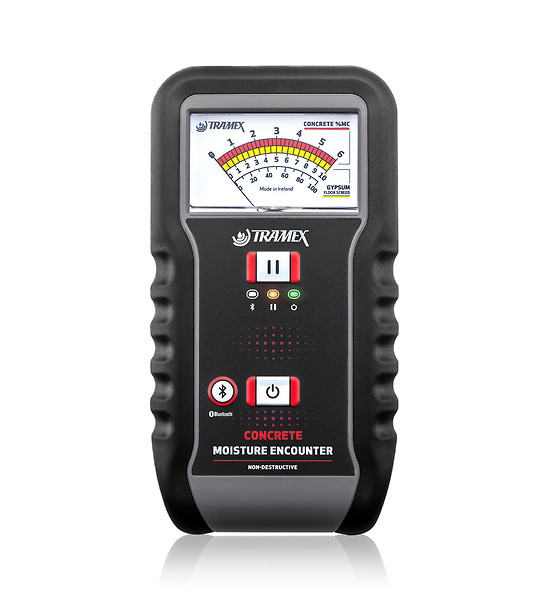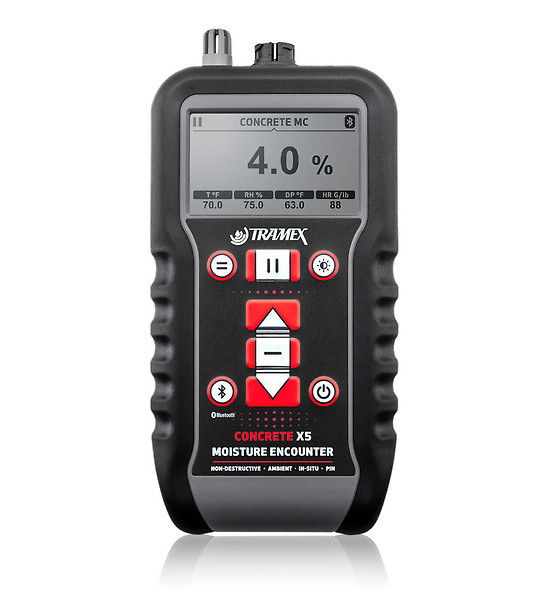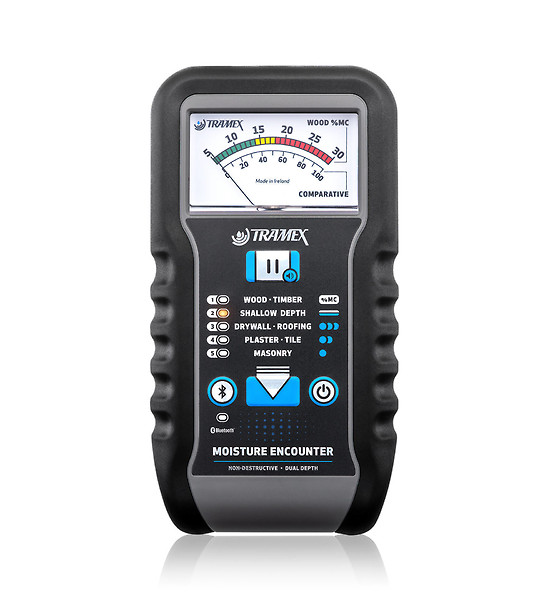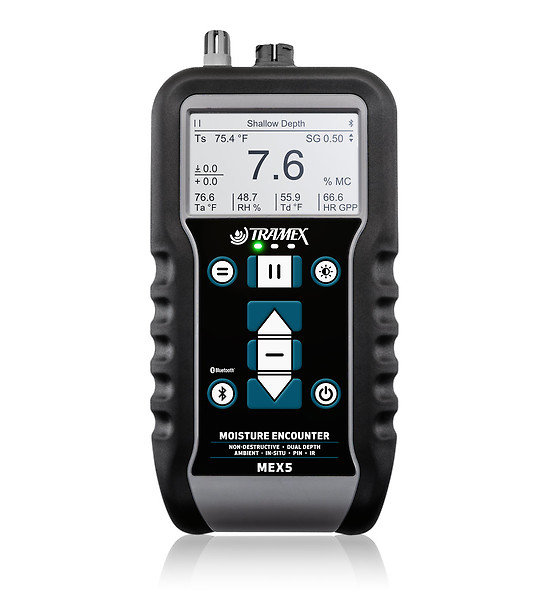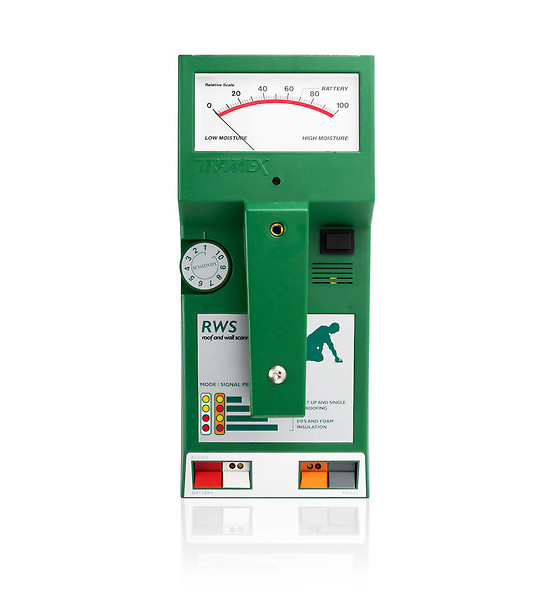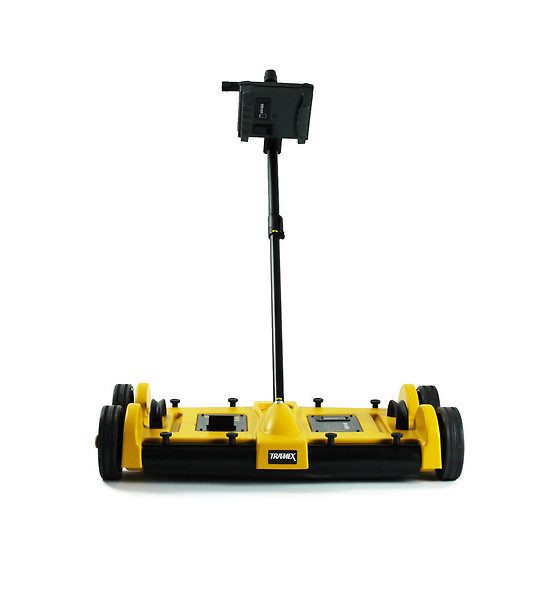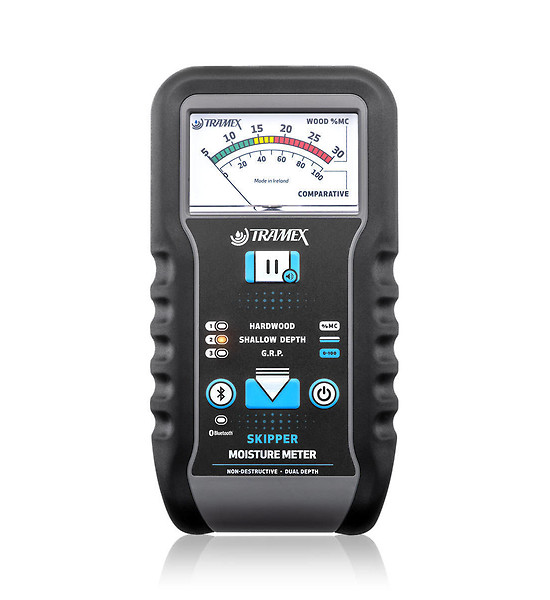What is a moisture meter?
A moisture meter is a device, either analog or digital, that is used to measure the moisture content in a given material.
Moisture meters are beneficial in various applications such as construction, flooring installation, coating application, water damage restoration projects and building or home inspections.
By providing instant moisture level readings, a high-quality moisture meter enables users to identify potential moisture-related issues that can lead to problems such as rot, mold growth, and material degradation in floors, walls, ceilings, and roofing structures.
Accurate and reliable measurements obtained from moisture meters play a crucial role in preventing structural damage during the construction stages. During flooring installation and coating application, these meters help prevent failures by ensuring appropriate moisture levels in the materials. Moreover, moisture meters prove beneficial in post-installation inspections, maintenance, and water damage restoration projects by aiding in the identification of the source and extent of floods and moisture ingress.
Tramex Moisture Meters are specifically designed for detecting, locating, and measuring moisture in various building materials. These meters are suitable for use with materials such as concrete, wood floors, wall structures, roofing systems, as well as boat materials like wood and GRP.
